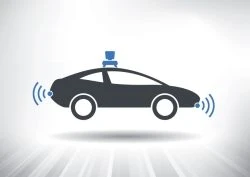
A popular topic that we like to keep up with is that of self-driving vehicles. There are numerous manufacturers racing against the clock to release the first self-driving cars to consumers. While the National Highway Safety Administration has yet to release guidelines for these vehicles, they are expected to provide those in July.
Companies such as Google, BMW, and Honda are just a few that may be competing for buyers when that time comes. Each has been developing autonomous driving automobile technologies that we hope will make U.S. roadways safer. The idea is that by removing human error from the equation and introducing more technological advancements, fewer crashes will occur. It may also cut down on the number of drunk or distracted driving wrecks if the safety claims are correct.
The first company believed to have started investigating and testing self-driving vehicles is Google. The company’s autonomous vehicles have been tested on roadways in certain states for years. Recently, Google agreed to team up with Fiat Chrysler to develop self-driving minivans. This is said to be the first instance in which Google has been willing to work with an auto manufacturer directly. Google’s driving technology will be installed on Pacifica model minivans and tested for safety.
Honda Motor Company previewed an autonomous prototype in late May in an effort to alert consumers to their ability to compete with the many self-driving models being developed by other manufacturers and brands. The first step towards fully autonomous vehicles has been for Honda to implement partial-autonomous functionality in multiple models. These features include lane-departure and forward-collision warnings in Civics and Acuras. These steps are said to have a purpose of prepping consumers for the next big thing: self-driving Honda vehicles.
BMW is another company that has dedicated an entire division to self-driving vehicle development. The “i” division is dedicated to providing a vehicle that not only drives itself, but is electric and safer for the environment as well. The company is rumored to have plans of starting a ride-hailing company if fully autonomous vehicles hit the roads. This would provide much lower overhead due to not paying drivers.
At Jones & Swanson, we keep up with the latest automotive trends and developments because they may one day affect Georgia roadway safety. Whether for the better or worse, we like to know what possibilities lie ahead.
Categories: Announcements

